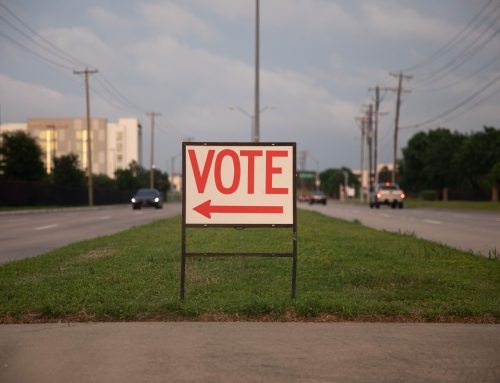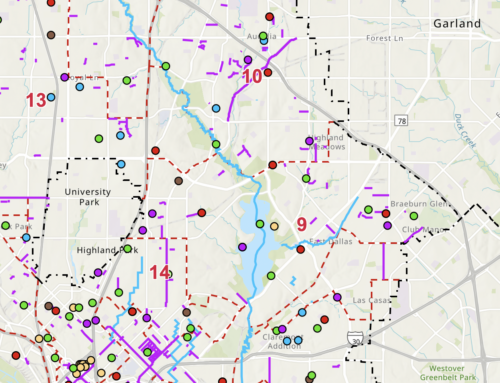Whenever I write a story for the Advocate, almost invariably someone says to me, “Tell Rick Wamre I said hello.” Apparently, in the course of 16 years of running our empire, Rick has met hundreds and hundreds — if not thousands — of people. This makes perfect sense, given the number of chamber of commerce meetings, PTA events, and countless local functions that he has attended since we started this adventure in 1991.
I mention this not to praise Rick’s community involvement (which would embarrass him, and even worse, probably get him named to another board), but to note that if he was politically minded, he could well be our next mayor. Talk to people who are supposed to know these things, and they say it’s going to take just 20,000 votes to finish first or second in this month’s mayoral election and make the runoff in June. I may or may not know a whole lot about politics, but I do know that there are 20,000 people in the four neighborhoods where we publish magazines who would vote for Rick.
And I mention this not to plump Rick as a candidate the next time around, the repercussions of which I would never stop hearing about, but to make a point: That the next mayor of the ninth-largest city in the United States, facing a variety of serious challenges and divisive issues, could have been a guy that 95 percent of the eligible voters had never heard of. And I don’t know that he would have had to do a whole lot to appeal to those 95 percent to make the runoff.
Because, given how few people vote in municipal elections, candidates don’t need citywide support, citywide issues or citywide anything. Yes, this year is a bit of an exception, given that we have 10 candidates to split the votes. But that doesn’t change the size of the pie. All a mayoral candidate needs is one peg to hang his or her hat on, whether it’s African-American voters south of the Trinity, liberal and gay voters in Oak Cliff, Oak Lawn and East Dallas, or cranky Anglo voters in North Dallas.
Yes, this sounds silly, but don’t laugh too hard. That’s how we ended up with Jim Foster as Dallas County judge. (And yes, everyone is allowed to look up questioningly and ask, “Who?”)
I don’t know why more people don’t vote in municipal elections. I know all the reasons, certainly, but it still doesn’t make any sense to me. I can even understand apathy nationally, though I don’t agree with it. But here? In this town, where so much screams out for fixing? Where we can actually affect things, almost immediately, with just the threat of the ballot? And in a city where politics is still so small-town that you can call your council member at home and chew her or him out?
Nevertheless, no one votes in city elections here. Literally. In this decade, the biggest turnout was 132,404, or 21.7 percent of registered voters, in the 2002 special election that featured Laura Miller in her first citywide election. Other than that, the numbers are pathetic. How about the 41,900 who turned out in 2001? Even in 2005, when the strong mayor proposal was on the ballot, just 106,000 voted, or about 12 percent.
Yet so many of us moan and whine about the incompetent bumblers downtown who keep raising our taxes and wasting our money. Go figure. It’s not like we don’t have a way to get rid of them. Here’s a note for everyone who has watched, in pain, as Miller has been mayor for the past five years. If Tom Dunning, who finished second in 2002, had gotten 13,000 more votes — or about 24 votes per precinct — he would have won the first round and had momentum going into the runoff. And then who knows?
Just think of that — 24 votes. Those aren’t even Wamre-like numbers.




